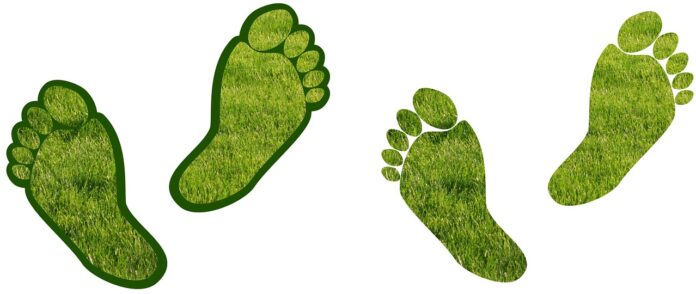Source: MakeLemonade.nz
Ōtautahi – The United Nation’s latest IPCC climate report says global temperatures are rising faster than first thought while CO2 emissions in the air are far too high. We are burning too much carbon.
The IPCC – Intergovernmental Panel on Climate Change – which consists of 195 governments, has emerged as one of the most credible sources of climate science.
A lower carbon lifestyle is better for the climate, for wellbeing, and on the pocket. Kiwis can take a whole range of actions to cut down energy-related greenhouse gas emissions.
Climate change is caused by greenhouse gas emissions. Understanding your carbon footprint is a great place to start. The fewer emissions, the smaller your footprint.
But what can New Zealanders do to help fight climate change? Plenty, so much, but don’t seek perfection before doing good. Here are some options:
- Walk, bike, take a bus sometimes if you can.
- Work from home some of the time if you can.
- Insulate your home, wear more clothes and turn down the heat.
- Burn wood not fossil gas or coal for heat; get a heat pump. A good dose of insulation is your best step to a warmer, drier, healthier home.
- Eat less red meat less often. Plant-based food is easily the best to eat. Discover ways to eat a lower carbon diet. Minimise food waste and reuse or recycle before dumping stuff.
- Support leaders who are trying to do the right thing.
- Understand the emissions created by the things you buy.
- Think very carefully about long haul air travel for business and recreation. Say no to unnecessary flights and watch your carbon footprint shrink.
- Do what you can to support others to reduce their emissions, like offering ride sharing to reduce total kilometres in internal combustion engine vehicles. Zip around in a climate-friendly car that’s powered by New Zealand’s renewable energy. Don’t buy a new high emissions vehicle and try convincing your mates not to. It’s selfish.
- Learn about the impact our digital devices have on carbon emissions, and ways we can reduce it.
- Go solar if you can. Harnessing free energy from the sun takes a big investment and careful thinking.
- Shop sustainably. There are lots of ways to shop sustainably, like buying second hand, researching what you buy, or saying no to buying it altogether.
- Shop sustainably. Fashion is better when it’s not fast. Discover ways to make ethical and sustainable fashion choices.
- Find out how to spot a carbon conscious company and learn what to avoid.
- Measure your carbon impact. Reducing your impact starts with understanding it. Use the FutureFit tool to measure your carbon footprint.
- Choose good appliances. Let efficient appliances do the hard work for you. An appliance with more stars on the Energy Rating Label is more energy efficient. Go around the house or work and can calculate your running costs so Aotearoa can save energy and reduce emissions.
- Use hot water efficiently. Getting more efficient with your hot water use can have a surprisingly big impact on your power bill.
- Use LED lighting. They use way less electricity and last a lot longer.
- Build low carbon. Lock in low emissions living when you buy, design, or renovate your home.
- Harnessing free energy from the sun takes a big investment and careful thinking.
- Zip around in a climate-friendly car that’s powered by New Zealand’s renewable energy.
- Look at an electric bike or scooter. Jumping on two wheels is a climate-friendly solution to local trips and parking problems.
- Enjoy more offline downtime. Grab a book, play a board game, take a walk, hang out with the whānau. These things produce fewer climate-changing emissions than screen time. Smartphones, data centres, streaming services and networks all need energy and non-renewable resources to be produced and run, generating a lot of climate-changing emissions.
- Finally, don’t seek perfection before doing good.



